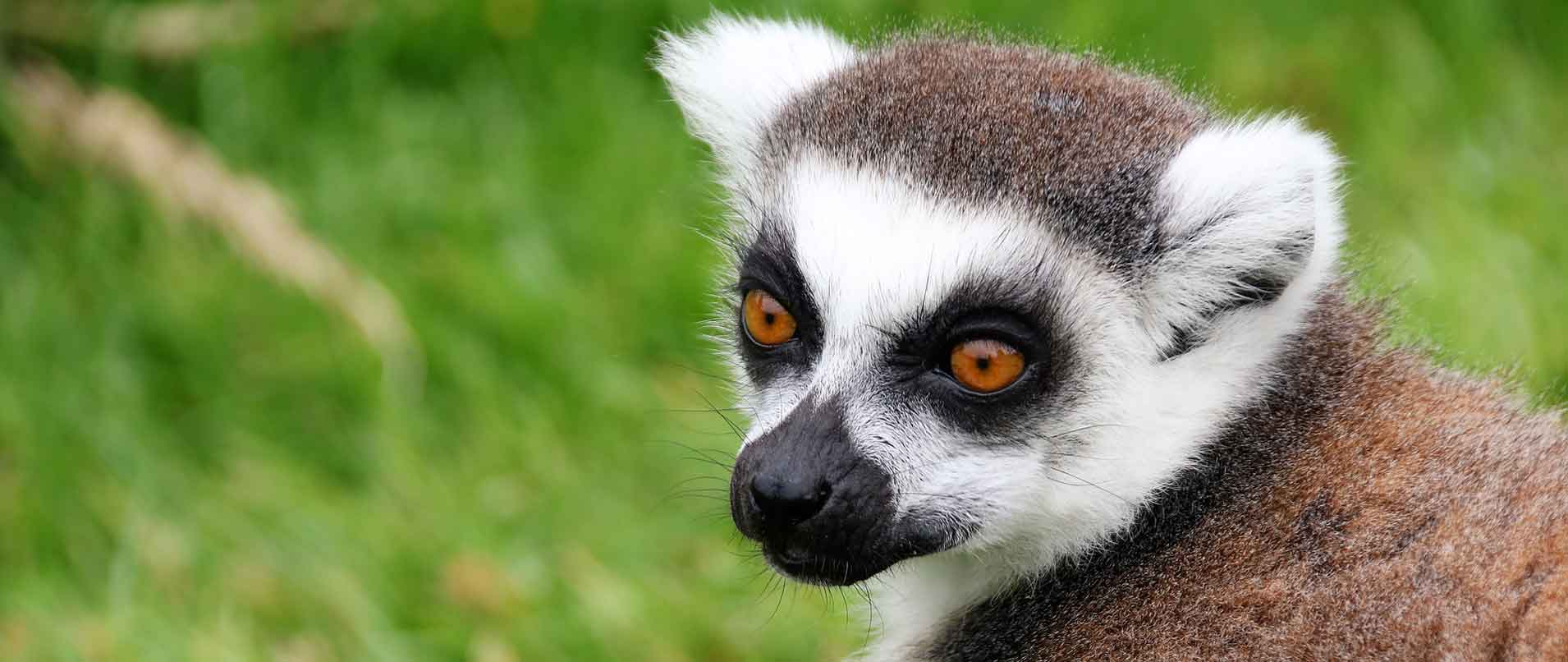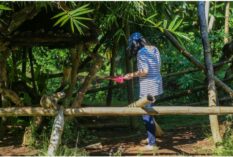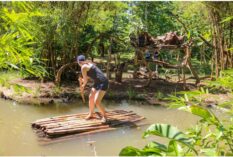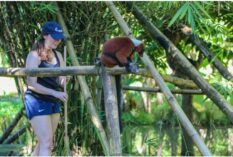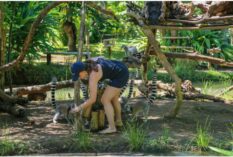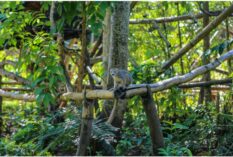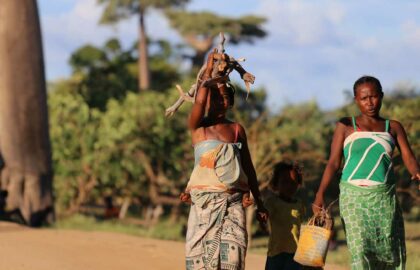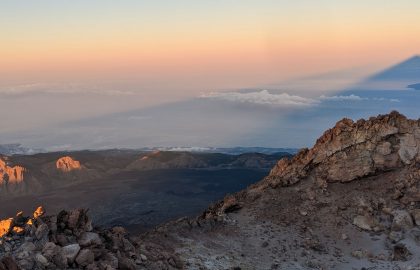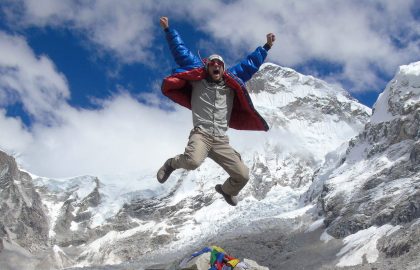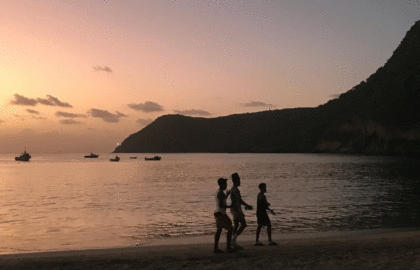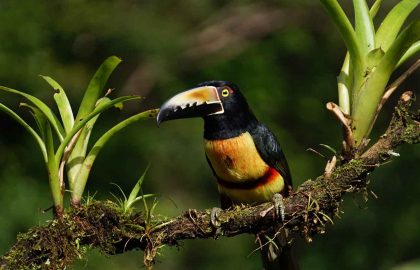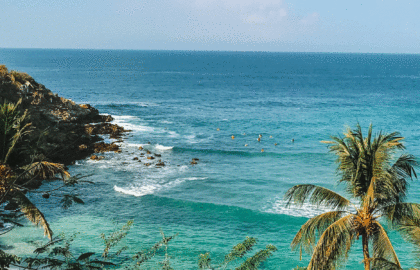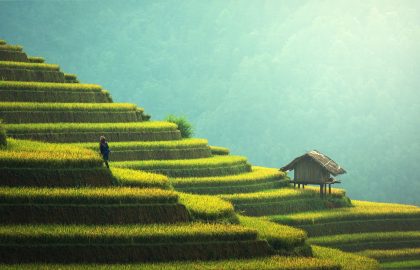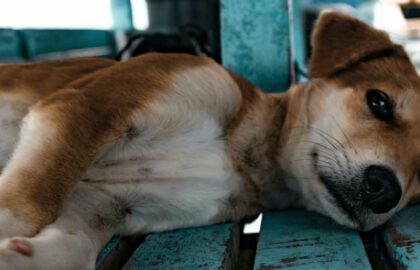Description
Location: Nosey Be, Madagascar
Duration: Minimum 2 weeks
Start Dates: Project is on-going with start dates each week.
Cost: from €700 Euros – see Costs section for more details
Includes: all food, accommodation, airport pickup, orientation and all project related activities
Does not Include: flights, travel insurance, visas and vaccinations
Introduction
Experience the unique opportunity to actively contribute to the preservation of lemurs in the captivating surroundings of Nosy-Be. Engage in a comprehensive range of daily tasks while also undertaking crucial data collection efforts, encompassing not only lemurs but also the diverse array of species residing in our program locations.
Our program caters to passionate individuals who possess a deep dedication to working alongside lemurs within a carefully controlled environment. Immerse yourself in a sanctuary that grants you unparalleled proximity to these fascinating primates, as well as the chance to encounter other remarkable inhabitants such as turtles, crocodiles, chameleons, and various reptiles. Furthermore, you will actively participate in identifying the natural flora surrounding the project site and contribute to an ever-expanding inventory database.
Embark on an adventure that merges conservation and hands-on involvement, leaving a lasting impact on the lemurs and their extraordinary ecosystem. Join us in this exceptional endeavour to protect and preserve these magnificent creatures and their remarkable habitat.
Daily Life
Immerse yourself in an extraordinary experience that combines adventure, ecological research, and conservation efforts. The Lemur Experience & Conservation Project is dedicated to preserving the exceptional biodiversity, with a special focus on the unique lemur population of Nosy-Be, Madagascar. Join us in this impactful endeavor, designed specifically for participants with a passion for ecological research and conservation work.
Madagascar’s lemurs have faced numerous challenges in recent years, including deforestation, habitat degradation, and poaching, leading to a decline in their populations. Our conservation project in Nosy-Be aims to tackle these issues head-on through habitat restoration, population monitoring, and community awareness campaigns in our program locations.
As a participant, you will have the remarkable opportunity to closely interact with various lemur species, making it a dream come true for wildlife enthusiasts. In addition to fulfilling daily responsibilities such as feeding lemurs and maintaining their surroundings, you will actively contribute to the creation of an evolving database, under the guidance of experienced researchers. Each lemur’s information, including age, sex, breeding patterns, behavior, identification markers, and physical characteristics, will be meticulously recorded and consolidated.
Moreover, your efforts will support the park’s veterinarian in providing appropriate care for each resident. Your fluency in English will also enable you to enhance visitors’ awareness of the lemurs within the sanctuary.
In conjunction with your hands-on involvement, you will play a crucial role in creating impactful awareness campaigns targeted at educating the local community about the significance of protecting the lemur population and its fragile habitat.
Embark on this rewarding journey, where your contributions will make a tangible difference in safeguarding the lemurs of Nosy-Be. Join us as we strive to protect these enchanting creatures and inspire a collective commitment to their preservation.
You will play a critical role in the well-being of lemurs in a controlled environment & conservation efforts in Nosy Be. Your contribution helps us to protect this unique environment and its inhabitants. Before you begin your volunteer work, it is essential to understand your role, responsibilities, and expectations.
Your general duties will include the following:
- Assist in the food preparation and feeding the lemurs.
- Assist in cleaning the areas where the lemurs are
- Assist in the care of other species in the sanctuary.
- Create, add and follow-up the database of the lemurs and other species that inhabit the sanctuary (Age, sex, breeding, daily behaviour, identification markers & physical characteristics)
- Create, add and follow-up (the growth) the database of flora at project locations.
- Converse and offer insights with visitors coming to the sanctuary in English.
- Create a seamless handover on this program for the next batch of participants to continue evolving this program in Nosy Be under the guidance of the subject matter expert from TGL.
Your daily routine starts at 7:30 am and ends at 4:00 pm.
07.30 am: Breakfast at the accommodation
08.00 am: Depart from the accommodation
08.30 am: Report to the Lemur Experience & Conservation program / Daily briefing
09.00 am – 12.00 pm: Activities pertaining to the program
12.00 pm – 01.00 pm: Packed lunch at site
01.00 pm – 04.00 pm: Activities pertaining to the program
04.00 pm – Depart to the accommodation
07.30 pm – Dinner will be served at the accommodation.
Travel and Accommodation
You will be met at Nosy Be airport and taken to the project location.
In our center, there is a dining room, a lounge area where you can hang out with fellow volunteers and a beautiful garden to relax. A balcony and large roof terrace is also available for you to spend some quality time.
There is a refrigerator which you are welcome to use to store food and beverages.
Requirements
- Necessary flights & visas
- Full travel & medical insurance
- Vaccinations (including full vaccination against COVID-19)
- Be able to communicate in English
- Be open minded, patient, adaptable and willing to embrace the challenges of the project
- Have a positive attitude towards living in a rural setting and working in a team
Costs
€700 Euros per week
* Check the latest currency conversions with xe.com
** All payments incur a 5% bank transfer fee
*** Placements are confirmed with a 1 week deposit
What’s Included:
Project Fee includes
- All food and accommodation
- Airport pickup
- In-country support and all project activities.
What’s not included:
- Flights,
- Travel & Medical insurance
- Visas (if applicable) and vaccinations.
Full assistance will be provided in getting all these arranged if you choose our Premium Support.
Premium Support Upgrade
We understand there’s a great deal to plan and organise for your trip. When booking a Placement, many of our participants choose to purchase our Premium Support Upgrade to benefit from the expertise, knowledge and experience of our Project Coordinators.
We can provide the personal advice you need to ensure your trip is organised with excellence and planned with efficiency; ensuring the very best experience possible. Read more about how we can help you.
Madagascar
Note: Map coordinates are approximate

